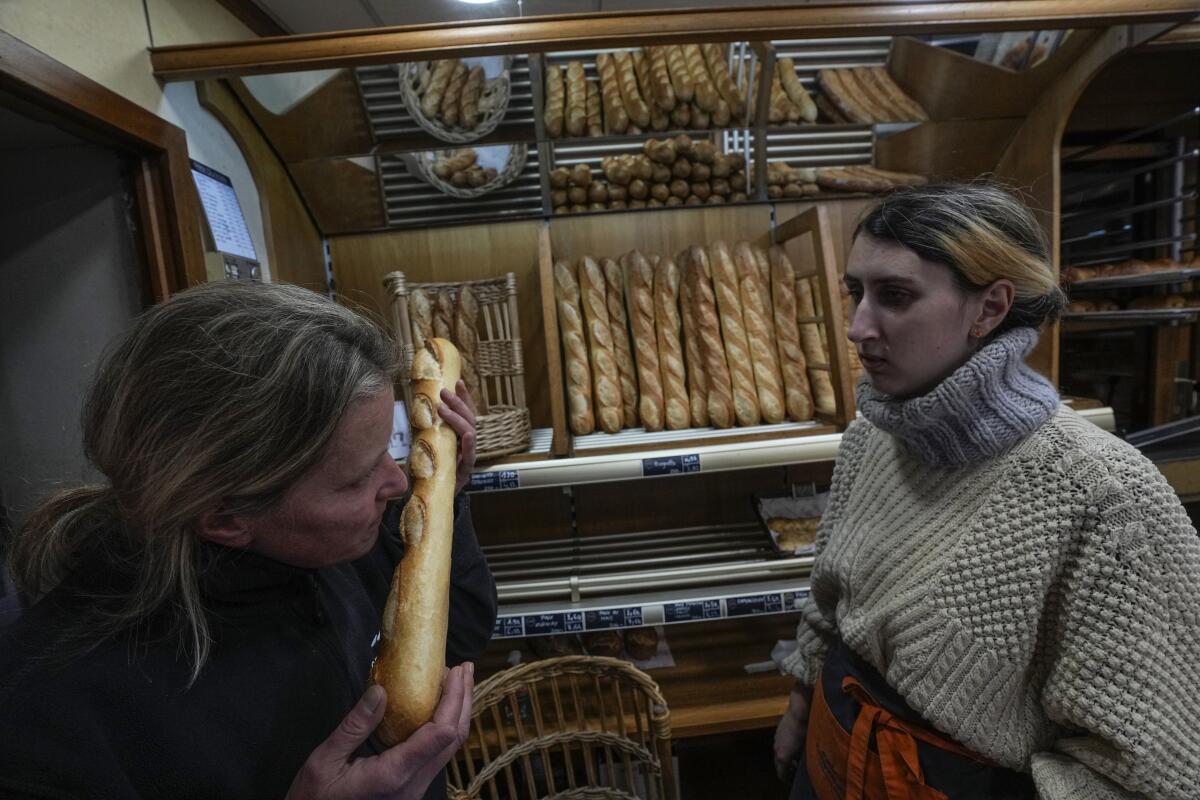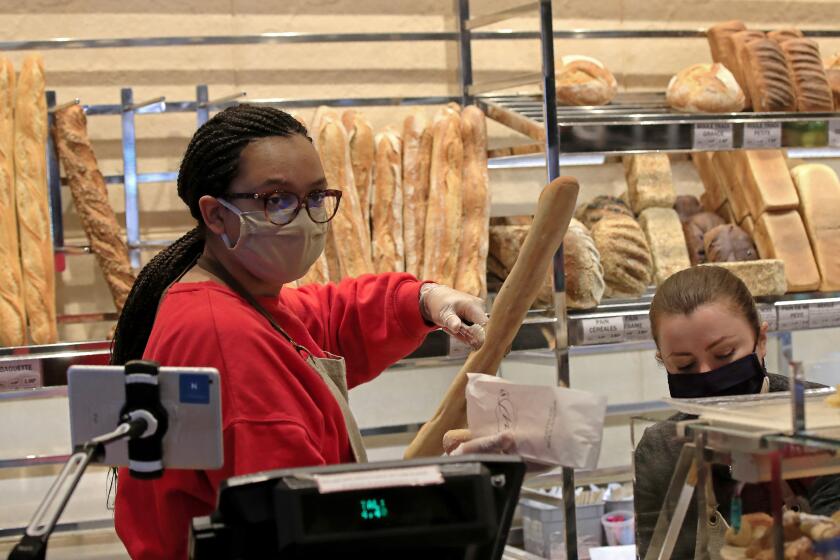That baguette you just bit into is now on the U.N.’s world cultural heritage list

- Share via
PARIS — The humble baguette — the crunchy and chewy ambassador for French baking around the world — is being added to the United Nations’ list of intangible cultural heritage that deserves preservation by humanity as a cherished tradition.
UNESCO experts gathering in Morocco this week decided that the simple French flute — made only of flour, water, salt and yeast — deserved U.N. recognition, after France’s culture ministry warned of a “continuous decline” in the number of traditional French bakeries, with some 400 closing every year over the past half-century.
The U.N. cultural agency’s chief, Audrey Azoulay, said the decision honors more than just bread; it recognizes the “savoir-faire of artisanal bakers” and “a daily ritual.”
“It is important that these craft knowledge and social practices can continue to exist in the future,” added Azoulay, a former French culture minister.
With the bread’s new status, the French government said it planned to create an artisanal baguette day, called the “Open Bakehouse Day,” to connect the French better with their heritage.
French bakers seemed proud, if unsurprised.
The iconic loaf and the French daily ritual of buying it have become loaded with moral, civic and public health considerations that could never have been imagined.
“Of course it should be on the list, because the baguette symbolizes the world. It’s universal,” said Asma Farhat, baker at Julien’s Bakery near Paris’ famous Champs-Elysee avenue.
“If there’s no baguette, you can’t have a proper meal. In the morning you can toast it, for lunch it’s a sandwich and then it accompanies dinner.”
Despite the decline in traditional bakery numbers, France’s 67 million people remain voracious baguette consumers — purchased at a variety of sales points, including in supermarkets. The problem, observers say, is that the bread can often be of poor quality.
“It’s very easy to get bad baguettes in France. It’s the traditional baguette from the traditional bakery that’s in danger. It’s about quality, not quantity,” said one Paris resident, Marine Fourchier, 52.
The quintessential Paris experience is to enter a boulangerie, inhale the heavenly smell of fresh bread and buy a baguette for an impromptu picnic on the Seine.
In January, French supermarket chain Leclerc was criticized by traditional bakers and farmers for its much-publicized 30-cent baguette. The chain was accused of sacrificing the quality of the famed 26-inch loaf. A baguette normally costs just over $1, and the price is seen by some as an index of the health of the French economy.
The baguette is also serious business. France’s Bread Observatory — a venerable institution that closely follows the fortunes of the flute — notes that the French munch through 320 baguettes in one form or another every second. That’s an average of half a baguette per person per day, and 10 billion every year.
Although it seems like the quintessential French product, the baguette was said to have been invented by Vienna-born baker August Zang in 1839. Zang put in place France’s steam oven, making it possible to produce bread with a brittle crust yet fluffy interior.
The product’s zenith did not come until the 1920s, with the advent of a French law preventing bakers from working before 4 a.m. The baguette’s long, thin shape meant it could be made more quickly than its stodgy cousins, so it was the only bread that bakers could make in time for breakfast.
More to Read
Sign up for Essential California
The most important California stories and recommendations in your inbox every morning.
You may occasionally receive promotional content from the Los Angeles Times.














